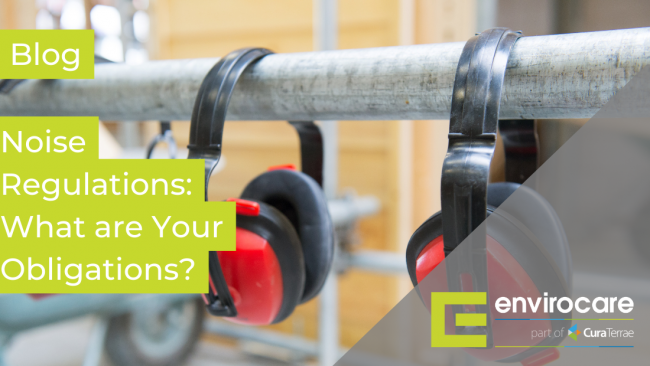Noise Regulations: What Are Your Obligations?
22 April 2016

A Brief Guide To UK Noise Regulations
Noise Regulations act as a safety net due to noise being a common issue in most industrial environments we carry out work in, whether it be the hum of a production line in a printing works or the short, sharp noise of a hammer hitting a metal unit when fabricating a container in a welding workshop.
The Risks of Noise at Work
Regular exposure to these noises over time can result in noise induced hearing loss. On top of the inability to hear, noise induced hearing loss can affect a person’s mental and physical health – causing social isolation and not been able to hear nearby hazards in both the industrial and living environments.
What Are Your Workplace Noise Obligations?
The Control of Noise at Work Regulations 2005 set employers a number of obligations to protect their workers. Where there is chance of noise levels been exceeded. Employers are obliged to:
- Conduct noise risk assessments – including assessing exposure and identifying the means of controls for the noise.
- Record any significant findings from the noise risk assessments.
- Eliminate or reduce noise exposure to as low as reasonably practicable and to ensure that operators are not exposed to noise levels above the Upper Exposure Action Values of 85dB(A).
- Provide suitable hearing protection for operators working in hearing protections zones (which should be clearly marked). Any hearing protection provided should be well maintained.
- Ensure that noise controls are properly used and maintained.
- Place employees under suitable health surveillance and where hearing damage is found ensure the employee is made aware before reviewing the control measures and risk assessments.
- Provide information, instruction and training where noise hazards are detected.
Noise Risk Assessments
The noise risk assessment should establish whether the Exposure Action Values are likely to be exceeded, and where it is exceeded; there should be evidence of an action plan for controlling the risks and compliance with UK noise regulations. Failure to control noise hazards, can result in formal enforcement from the Health and Safety Executive.
A noise risk assessment should be carried out by a competent person, and should include:
- Recommendations on controls to reduce noise exposure.
- Recommendations on which employees may require Health Surveillance.
- A reliable estimate of your employee’s exposures, compared against the Exposure Action Values.
- Identification of areas where there may be a risk from excessive noise, and which operators are likely to be affected.
Experts In UK Noise Regulations and Noise Risk Assessments
Envirocare have over 20 years experience as a company in providing information, noise regulations guidance and occupational noise monitoring services to enable compliance with the Control of Noise At Work Regulations 2005.
Envirocare are still one of the only occupational hygiene consultancies in the UK to be UKAS accredited for the monitoring of both Dust and Noise. Demonstrating that Envirocare complies with Health & Safety best practice and is competent to deliver a consistently dependable, unbiased and accurate service. Holding the internationally recognised UKAS accreditation proves that the holders services meet the appropriate standard for testing employee exposure to workplace noise in the UK.
Envirocare also have many years of experience in providing Audiometric Services to enable compliance with The Noise at Work Regulations 2005.
Call us on 01274 738668 or fill out our Envirocare Enquiry Form for any queries regarding noise regulations, workplace noise levels, noise exposure, noise risk assessments, UKAS Noise Surveys or any of our many other accredited Environmental and Occupational Hygiene services.
